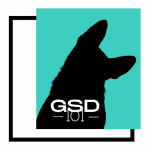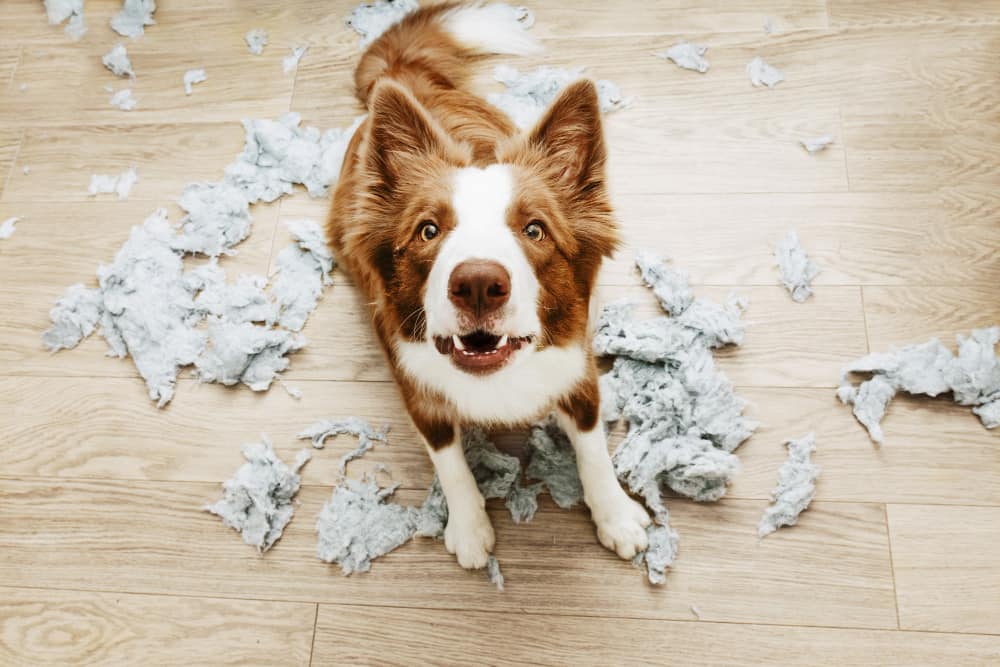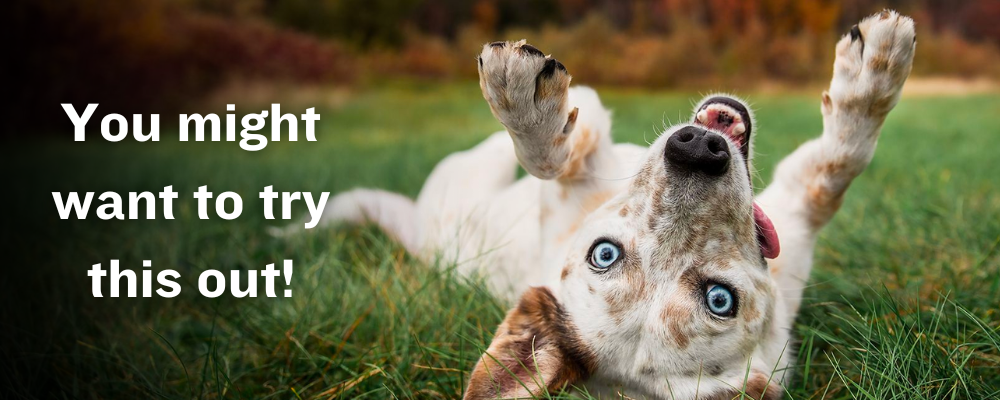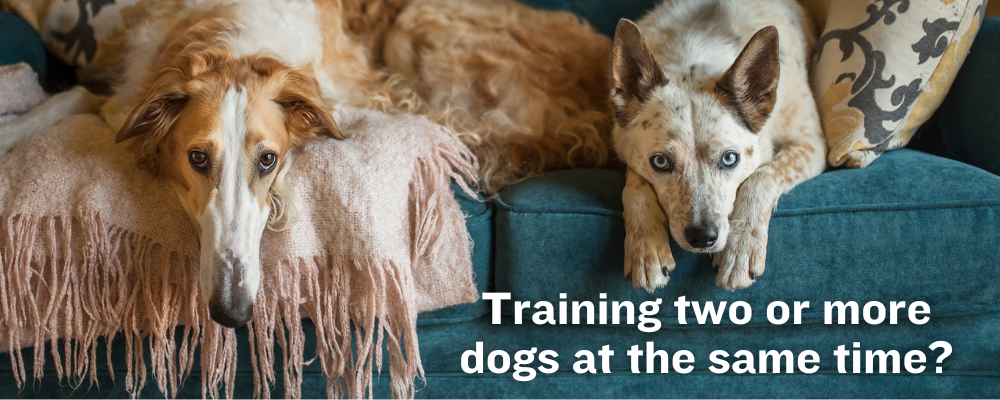Dogs are natural chewers. Some dogs, like German Shepherds, chew more often than others. From shoes and furniture to remote controls and underwear, even if it doesn’t look like it could be chewed up, your dog will probably put it in their mouth.
If you are in search of quick tips to stop your dog from chewing on anything and everything in the house, you’ve come to the right place.
Why does your dog chew?
First thing first, it is normal for a pup to chew. He is just being a dog.
Here are the common reasons for a dog to chew:
Exploration of a new environment
Curious puppies explore the world with their mouths rather than with their paws.
Chewing is a way for dogs to explore a new environment. It can happen to puppies as well as newly adopted dogs.
Getting acquainted with a new setting through their mouths is as normal as touching tasting and feeling things around them.
Releasing of excessive energy (a.k.a. boredom)
One of the most common reasons for dogs to chew on things is to release their pent-up energy or because they’re bored.
They may do it to get your attention or for fun when you are away. They don’t chew on stuff just because. But if you ignore them, they may try it out again.
Puppy Teething
German Shepherds, for example, will begin to lose their puppy teeth from age of 4 months. But some puppies start losing their teeth earlier or later.
They need to relieve the uncomfortable teething process by chewing on things. Try giving your pup ice cubes, frozen wet washcloths or frozen chew treats to help numb their gums while they go through this painful period.
Separation Anxiety
Does your pup only chew objects to the point of destruction when he or she is left alone?
If so, your pup is likely experiencing some sort of separation anxiety. This anxiety is manifesting itself in the form of chewing on anything and everything that is available as a way to relieve the stress of being alone.
To resolve this issue, start by leaving your pup alone for shorter periods of time in a crate with their favorite toy or treat. This will help him associate you being gone with a happy place filled with his favorite things.
5 Simple solutions to stop a dog from chewing
Luckily, there’s a way to keep your dog from chewing on anything in the house. The best way to stop your dog from chewing is to simply stop it from chewing in the first place. So what exactly are you going to do?
Here are five tips that can help:
#1 Make sure they have plenty of exercises
A tired dog is a good dog, so make sure they get lots of physical activities. The amount of exercise should be based on their age, health, and breed characteristics.
An easy way to ensure your dog gets plenty of exercises is to go on daily walks. And try to incorporate other outdoor activities, like fetch, into your daily routine as much as possible.
Sometimes if you are busy, hiring a walker may be a good choice to get your dog to channel out the excessive energy. For dogs who enjoy the company of other dogs, well-run doggy daycare can be an excellent choice for high-energy pups.
#2 Make sure you’re providing enough mental stimulation
Keeping a dog’s brain stimulated is as important as daily physical exercises. Mental stimulation can keep your dog happy, calm, and relaxed. And reduce destructive chewing behavior.
Introducing short sessions (5-15min) of training with new tricks can be one of the things you can get your dog’s mind busy. Playing “dog treat hunt” is also a fun and easy game to stimulate his instincts. Interactive toys like Kong are also a good choice.
#3 Give them plenty of appropriate toys
It’s easier to train them to chew their toys instead of a table leg than it is to train them not to chew at all. By having lots of interesting and appropriate chew toys on hand, it’ll be a lot effective to re-direct them from destructive chewing.
Do be aware that some dog toys and “chewable” can be ripped apart, and these can pose a choking hazard. Make sure the toys or you select are safe and appropriate for your dog according to his size (i.e. larger dogs need larger, tougher toys to prevent choking).
It is also important to rotate your dog’s chew toys and treats regularly so that they don’t get bored and start to develop destructive chewing behavior again.
#4 Reward your dog for not chewing
If you spot your dog in the middle of chewing on something you don’t want them to chew up, say “no” or “leave it” firmly. Then redirect them away from it with a reward.
Rewards can be a toy, a high-value treat (like cheese or turkey), and a lot of praise.
Praise should also be used anytime you notice your puppy or dog choose an appropriate chew toy. This will encourage him to go for his own toys rather than furniture, shoes, and anything in the reach around your home.
#5 Dog-proof your furnitures
Furniture and other items can be coated with a taste deterrent (such as Bitter Apple®) to make them unappealing for dogs.
Some dogs will chew an object even if it’s coated with a taste deterrent. So you may need to test it out to see if it is effective for your dog.
Also, be aware that you must reapply some of these deterrents to maintain their effectiveness.
What else could you do?
Dog proof your home – If you don’t want it in your dog’s mouth, don’t make it available. Keep clothing, shoes, trash, eyeglasses, and remote controls out of your dog’s reach. Putting trash in a secured cupboard or blocking off areas with enticing items is the easiest way to prevent unnecessary chewing.
Exercise pens and baby gates can come in handy.
Train your dog until they understand what are the appropriate items to chew. Keep them with you on their leash in the house so they can’t make a mistake out of your sight or only give them access to certain rooms of your home.
Introduce crate training as early as possible. You may also place them in their crate for short periods of time when you need to be away during the day. This could prevent free-roaming and save your dog from a lot of trouble.
Conclusion
At the end of the day, the best way to curb bad chewing behavior is to make sure your dog’s life is well balanced.
Plenty of physical and mental exercises, regular training, and a well-balanced diet can alleviate some of the causes of destructive chewing and influence positive chewing behavior. As the owner, you have to put in the hard work, patience as well as lots of love. It will be a rewarding investment.



